
William Wyler was a German-born American film director and producer. Known for his work in numerous genres over five decades, he received numerous awards and accolades, including three Academy Awards. He holds the record of twelve nominations for the Academy Award for Best Director. For his oeuvre of work, Wyler was awarded the Irving G. Thalberg Memorial Award, the Directors Guild of America Lifetime Achievement Award, and the American Film Institute Life Achievement Award.
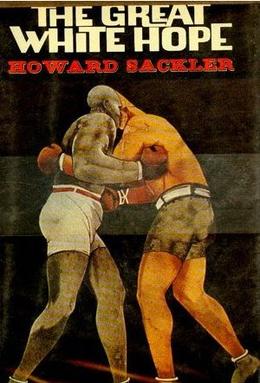
The Great White Hope is a 1967 play written by Howard Sackler, later adapted in 1970 for a film of the same name.
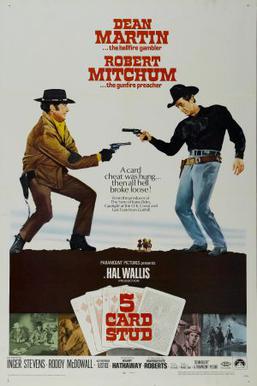
5 Card Stud is a 1968 American Western mystery film directed by Henry Hathaway and starring Dean Martin and Robert Mitchum. The script is based on a novel by Ray Gaulden and was written by Marguerite Roberts, who also wrote the screenplay of True Grit for Hathaway the following year.
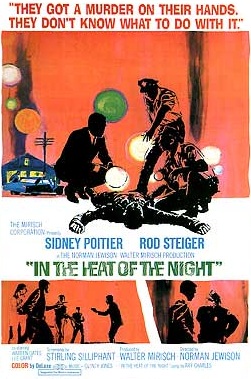
In the Heat of the Night is a 1967 American mystery drama film directed by Norman Jewison, produced by Walter Mirisch, and starring Sidney Poitier and Rod Steiger. It tells the story of Virgil Tibbs (Poitier), a Black police detective from Philadelphia, who becomes embroiled in a murder investigation in a small town in Mississippi. The film was adapted by Stirling Silliphant from John Ball's 1965 novel of the same name.

Loletha Elayne Falana or Loletha Elaine Falana, better known by her stage name Lola Falana, is an American singer, dancer, and actress. She was nominated for the Tony Award for Best Actress in a Musical in 1975 for her performance as Edna Mae Sheridan in Doctor Jazz.

Anthony Jared Zerbe is an American actor. His notable film roles include the post-apocalyptic cult leader Matthias in The Omega Man, a 1971 film adaptation of Richard Matheson's 1954 novel, I Am Legend; as an Irish Catholic coal miner and one of the Molly Maguires in the 1970 film The Molly Maguires; as a corrupt gambler in Farewell, My Lovely; as the leper colony chief Toussaint in the 1973 historical drama prison film Papillon; as Abner Devereaux in Kiss Meets the Phantom of the Park; as villain Milton Krest in the James Bond film Licence to Kill; Rosie in The Turning Point; Roger Stuart in The Dead Zone; Admiral Dougherty in Star Trek: Insurrection; and Councillor Hamann in The Matrix Reloaded and The Matrix Revolutions.

The Klansman is a 1974 American drama film based on the 1967 book of the same name by William Bradford Huie. It was directed by Terence Young and starred Lee Marvin, Richard Burton, Cameron Mitchell, Lola Falana, Luciana Paluzzi, David Huddleston, Linda Evans and O. J. Simpson in his film debut.
Stirling Dale Silliphant was an American screenwriter and producer. He is best remembered for his screenplay for In the Heat of the Night, for which he won an Academy Award in 1967, and for creating the television series Naked City, Perry Mason, and Route 66. Other features as screenwriter include the Irwin Allen productions The Towering Inferno and The Poseidon Adventure.
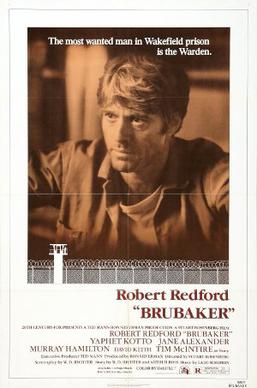
Brubaker is a 1980 American prison drama film directed by Stuart Rosenberg. It stars Robert Redford as a newly arrived prison warden, Henry Brubaker, who attempts to clean up a corrupt and violent penal system. The screenplay by W. D. Richter is a fictionalized version of the 1969 book, Accomplices to the Crime: The Arkansas Prison Scandal by Tom Murton and Joe Hyams, detailing Murton's uncovering of the 1967 prison scandal.

Blue Collar is a 1978 American crime drama film directed by Paul Schrader in his directorial debut. Written by Schrader and his brother Leonard, the film stars Richard Pryor, Harvey Keitel and Yaphet Kotto. The film is both a critique of union practices and an examination of life in a working-class Rust Belt enclave.

Eye of the Tiger is a 1986 American action film directed by Richard C. Sarafian, and stars Gary Busey, Yaphet Kotto, Denise Galik, Seymour Cassel, William Smith, and Judith Barsi. Busey plays a wrongfully incarcerated ex-convict who fights back against the biker gang harassing his hometown and the crooked sheriff protecting them. The film marked the beginning of the actor's transition to the action roles that would epitomize his career for much of the late 1980s and 1990s.
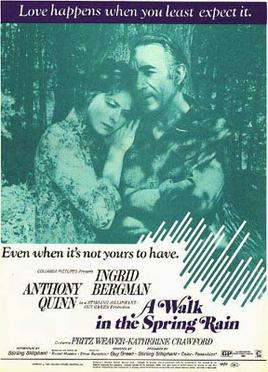
A Walk in the Spring Rain is a 1970 American romantic drama film in Eastmancolor made by Columbia Pictures, directed by Guy Green and produced by Stirling Silliphant, from his own screenplay based on the novel by Rachel Maddux. Outside location scenes were filmed in New York City, the Great Smoky Mountains National Park, Gatlinburg, Tennessee and Knoxville, Tennessee.

Marlowe is a 1969 American neo-noir film starring James Garner as Raymond Chandler's private detective Philip Marlowe. Directed by Paul Bogart, the film was written by Stirling Silliphant based on Chandler's 1949 novel The Little Sister.

"United We Stand" is a song written by Tony Hiller and Peter Simons. It was first released in 1970 by the Brotherhood of Man in their original, pre-Eurovision line-up, consisting of Goodison, Tony Burrows, Roger Greenaway, Sue Glover and Sunny Leslie. It became the band's first hit, peaking at #13 in the U.S., #9 in Canada, and #10 in the U.K. The song spent 15 weeks on the charts, and is ranked as the 64th biggest U.S. hit of 1970. It also reached #8 in Australia.
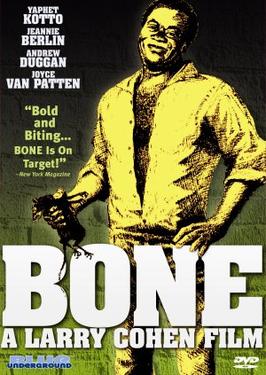
Bone is a 1972 American black comedy crime film written, produced, and directed by Larry Cohen in his directorial debut. It stars Yaphet Kotto, Joyce Van Patten, and Andrew Duggan. The film tells the story of a home invasion perpetrated by Kotto's character, who soon realizes that his victims are less wealthy and far unhappier than they initially appeared.
Jesse Hill Ford was an American writer of Southern literature, best known for his critical and commercial success in short fiction as well as the novels Mountains of Gilead and The Liberation of Lord Byron Jones.

Friday Foster is a 1975 American blaxploitation film directed by Arthur Marks and starring Pam Grier in the title role. Yaphet Kotto, Eartha Kitt, Scatman Crothers and Carl Weathers co-starred. It is an adaptation of the 1970–74 syndicated newspaper comic strip of the same name, scripted by Jim Lawrence and illustrated by Jorge Longarón. This was Grier's final film with American International Pictures. The tagline on the film's poster is "Wham! Bam! Here comes Pam!"
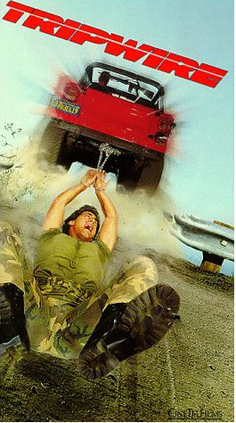
Tripwire is a 1989 American film directed by James Lemmo.
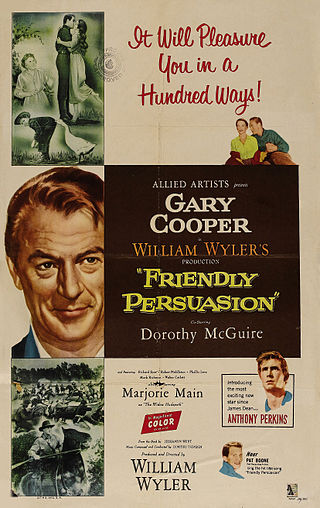
Robert Swink was an American film editor who edited nearly 60 feature films during a career that spanned 46 years.

Badge of the Assassin is a 1985 television film starring James Woods, Yaphet Kotto and Alex Rocco. It was directed by Mel Damski. The film first aired on the Columbia Broadcasting System network on November 2, 1985. The film's production company was Blatt-Singer Productions.


















